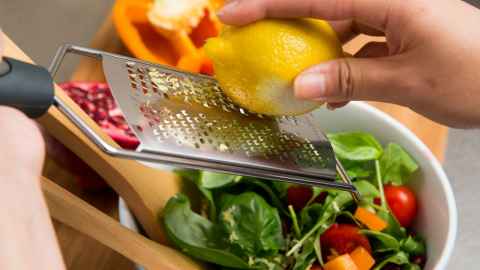Nourish Me Well
Creating awareness and understanding around what it means to eat for nourishment.

Date: Wednesday 1 May
Time: 10-11.30am
Location: Workshop 101, Kate Edger Info Commons, City Campus
Every day we are exposed to a lot of complex and conflicting messages about nutrition, which can often be distracting and overwhelming. This workshop is designed to focus on simple key concepts and guidelines rather than set rules, so that students are better equipped with the knowledge and practical skills to make informed decisions around their own health and nutritional needs. There is no ‘one right way to eat’.
We will delve into a few key nutrition concepts - nutrient density, dietary fibre, and gut health. The workshop is practical and interactive, with activities designed to get students involved in the learning process.
Students will learn how to read food labels, what small swaps can be made to enhance the nutritional profile of a meal, and how to find nutritious food options on campus.
The workshop will consider three common barriers to eating well- finances, time and accessibility, and work through practical suggestions for breaking down these barriers. We will debunk some myths about nutrition, such as, the myth that fat is bad, or people must have a strict diet to be healthy.
The workshop will conclude by highlighting support services/resources available to students who are looking for additional assistance with this aspect of wellbeing. We want students to walk away feeling empowered to approach nutrition with balance, peace of mind and confidence.
Key learnings
- Intake of all nutrients (macro and micro) are essential for optimal bodily function and energy.
- Eating a variety of whole foods will help us get the best profile of nutrients to meet our needs and achieve a balanced diet. Eat the colours of the rainbow.
- Make small swaps each day to increase nutrient density and dietary fibre intake.
- Nourishing Guidelines: 8 guidelines that we find helpful in informing our decisions of how we eat and drink.
- There is no ‘one right way to eat’. Each individual is different and knows what makes them feel good and what their body needs.
- When shopping for food, check the ingredient list- the shorter the list and the more ingredients you can recognise, the better. Look to include a variety of whole unprocessed foods/ingredients in your diet each week.
- Which on-campus food retailers offer nutritious food at a reasonable price.
- Barriers to nutrition: tips and tricks to break these barriers down and help students see how they can navigate these successfully.
Should you have any questions, please email wellbeing@auckland.ac.nz and the team will get back to you as soon as possible.